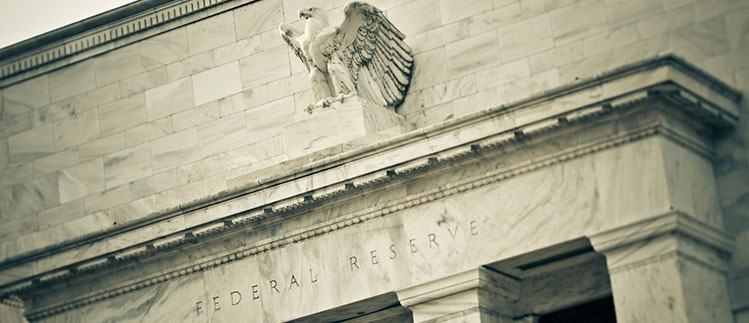The Federal Reserve system was conceived in secrecy by bankers and political power brokers. Since its establishment in 1913, the Fed has continued to operate behind a cloak of secrecy. Some of the Fed's secrets, however, could be exposed to the light of day if the new Republican-controlled U.S. Senate passes Audit the Fed legislation.
The Audit the Fed bill (a.k.a., the Federal Reserve Transparency Act) passed the House overwhelmingly in September. But Democrat Senate Majority Leader Harry Reid refused to allow a vote on it in the Upper Chamber.
Incoming Majority Leader Mitch McConnell will undoubtedly be urged by fellow Kentuckian Sen. Rand Paul to take up the legislation. Senator Paul is the lead cosponsor of the Audit the Fed bill. His father, former Congressman Ron Paul, served for many years as a leading (and often lone) critic of the Federal Reserve. Now one of his signature legislative goals finally stands a real chance of becoming law.
Auditing the Fed Is an Important First Step
The Federal Reserve Transparency Act would open some of the Fed's accounting books and subject its monetary policy deliberations to review by the Government Accountability Office. The mandated audit would cover the discount window, open market operations, funding facilities, and arrangements with foreign banks.Of course, there are a lot of things the Audit the Fed bill won't do. It won't reveal how much gold exists in Fort Knox. It won't force the Fed to trim its balance sheet. It won't reduce the Fed's regulatory reach. It won't bring back the gold standard. Nor will the proposed law restore free competition in currencies so that citizens can escape the dollar without tax consequences.
But make no mistake: the Fed views greater transparency as a threat to its power. Federal Reserve Chairwoman Janet Yellen said she intends to "forcefully" oppose Audit the Fed legislation in the next Congress. "I don't believe that the Federal Reserve is in any way corrupt, and I believe that the confidence of markets in the Federal Reserve and in our monetary policy making would not be enhanced by that type of audit," she explained.
Ms. Yellen expects us to just take her word that the monetary system over which she presides isn't corrupt. But given that the central bank's balance sheet has ballooned to $4.5 trillion –considerably more than the $3.8 trillion the federal government spent in 2014 – can We the People afford to trust the Fed on the basis of blind faith?

This is the same Federal Reserve that has helped drive down the purchasing power of the dollar by more than 95% since 1913.
Even though QE3 has officially ended, the size of the Federal Reserve's balance sheet will continue to grow. The Fed continues to fund its operations from interest on government bonds, while reinvesting interest on other securities it holds. It has already purchased $25 billion in mortgage-backed securities since the "end" of QE3. It is expected to add another $200 billion over the next year.
Although consumer price inflation as of now remains low, the risk of asset bubbles in bond and equity markets is high. Financial assets have been priced to perfection based on the Fed's policy of sustained ultra-low interest rates and investor expectations of sustained low rates of inflation. Just a slight uptick in inflation or interest rates (the Fed continues to telegraph rate hikes in 2015) could cause a panic out of interest-rate sensitive assets.
Even former Fed chairman Alan Greenspan has warned of the potential for a financial disaster as a result of the Fed's unprecedented adventures in monetary expansion. He suggests that owning gold is one of the best ways that people can protect themselves.
And auditing the Fed is the first step toward fundamentally reforming our monetary system. As more Americans become aware of the perils of concentrated power in the hands of a central banking cartel, more Americans will demand that Congress end the Fed. Or, failing that, at least take away some of the open-ended power of the printing press by pegging the value of the currency back to gold and silver.
Rand Paul is expected to introduce the Senate version of the Audit the Fed bill as soon as January. If you'd like to see some of the secrets the Fed has been hiding from public view exposed, then contact your Senators. Urge them to support the bill and work to make sure it passes the Senate with a veto-proof majority.



